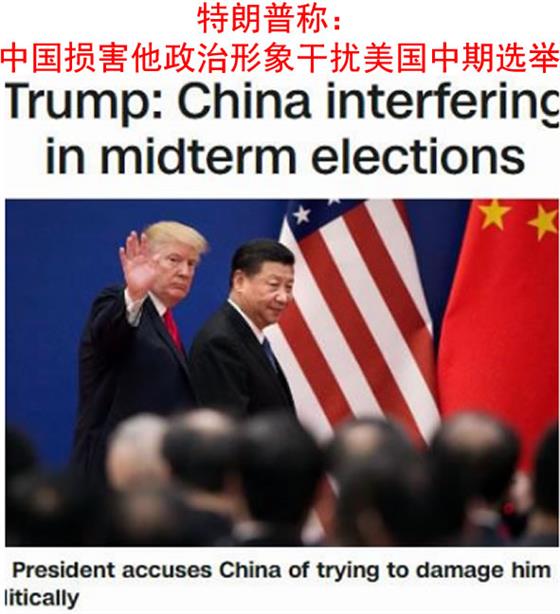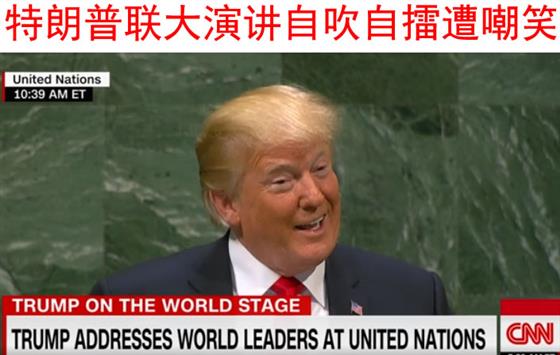He stated, clearly, his Administration's view of the world: "America will always choose independence and cooperation over global governance, control and domination."
The longer he spoke, the more portentous it became: "We will never surrender America's sovereignty to an unelected, unaccountable global bureaucracy. America is governed by Americans. We reject the ideology of globalism. And we embrace the doctrine of patriotism."
And Trump made it clear he is happy to divide the world into nations he sees as his friends and those he sees as undeserving enemies: "We are taking a hard look at US foreign assistance ... whether the countries who receive our dollars and protection also have our interests at heart. Moving forward, we are only going to give foreign aid to those who respect us and, frankly, are our friends."
And when he gave a shout out to some of those friends, he gave yet more insight into the sort of nations he considers allies. Many former friends were missing -- indeed, erstwhile ally Germany even came in for criticism.
Somewhere near the top of the friends list this year -- an astonishing turnaround from being the leader Trump criticized so readily from this very platform last year -- was North Korea.
"I traveled to Singapore to meet face-to-face with North Korea's leader, Kim Jong-Un. Since that meeting, we have already seen a number of encouraging measures that few could have imagined."
South Korea and Japan both got a shout out, too.
He singled out Saudi Arabia as a key ally, specifically piling praise on its autocratic rulers, King Salman and his son Mohammed Bin Salman.
Other autocratic Gulf states got praise, too: "The UAE, Saudi Arabia and Qatar have pledged billions of dollars to aid the people of Syria and Yemen."
He praised Poland, whose right-wing President Andzrej Duda met with Trump a few days ago, offering to help build a new US military base that he would call "Fort Trump."
The Polish leader, who faces possible sanctions from EU leaders for firing judges as part of sweeping political meddling in the country's judiciary, got a double helping of praise.
Trump explained that Poland found favor with him for the way in which it is standing up to Russia: "We congratulate the European states such as Poland for leading the construction of a Baltic pipeline so that nations are not dependent on Russia ... Germany will become totally dependent on Russian energy if it does not immediately change course."
There was a ringing endorsement of India's tough leader, Narendra Modi. Trump highlighted Modi's efforts on poverty, rather than his record of failing to curb sectarianism in India.
He also praised Israel: "There is Israel, proudly celebrating its 70th anniversary as a democracy in the Holy Land." This, of course, was Trump talking up his reasons for announcing Jerusalem as the capital of Israel last year, while making no mention of his cuts to UN budgets supporting Palestinians. The obvious implication: If the Palestinians are losing funding, they are not friends who respect the US.
As his speech drew to its close, Trump drew his thoughts together. Just in case we missed it, he made clear once more his belief that though we might all share this planet, we live on it separately: "The whole world is richer, humanity is better, because of this beautiful constellation of nations, each very special, each very unique. And each shining brightly in its part of the world."
An hour or so before, the same audience listened to another world view from the UN Secretary General, Antonio Guterres.
He seemed to foreshadow Trump's darker leaning with a lesson from history:
"Today, with shifts in the balance of power, the risk of confrontation may increase...In assessing the Peloponnesian War in ancient Greece, Thucydides said, and I quote, 'It was the rise of Athens and the fear that this instilled in Sparta that made war inevitable'."
Trump offers a different worldview, one that keeps nations apart. In his words, "We must defend the foundations that make it all possible. Sovereign and independent nations are the only vehicle where freedom has ever survived."
There will be some who listened to Trump today and heard echoes of the 1930s. Ironic, as the UN came into existence to overcome the global horrors from that dark moment in history.


